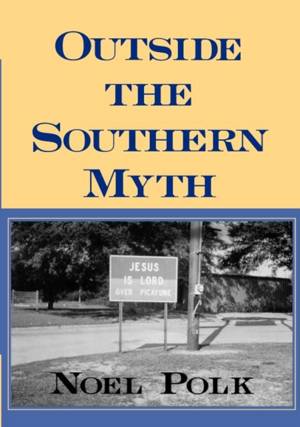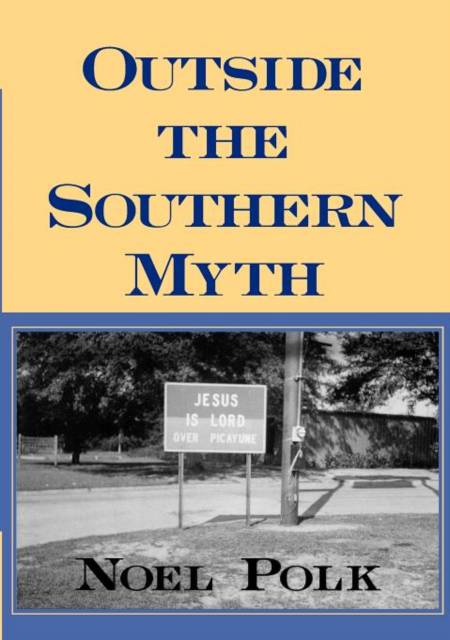
- Retrait gratuit dans votre magasin Club
- 7.000.000 titres dans notre catalogue
- Payer en toute sécurité
- Toujours un magasin près de chez vous
- Retrait gratuit dans votre magasin Club
- 7.000.0000 titres dans notre catalogue
- Payer en toute sécurité
- Toujours un magasin près de chez vous
Description
A southern male's forthright view of himself and of the real-life small-town culture that made him Noel Polk, the Faulkner scholar and academician, is a native of the small Mississippi city of Picayune. In his career as an international scholar and traveler and in his role as a teacher and a professor of literature he has moved beyond his origins while continuing to be nourished by his hometown roots. Like many other southern men he doesn't fit the outside world's stereotype of the southern male. "I almost invariably see myself depicted in the media as either a beer-drinking meanspirited pickup-driving redneck racist, a julep-sipping plantation-owning kindhearted benevolent racist, or, at best, a nonracist good ole boy, one of several variations of Forrest Gump, good-hearted and retarded, who makes his way in the modern world not because he is intelligent but because he's - well, good hearted." In Outside the Southern Myth Polk offers an apologia for a huge segment of southern males and communities that don't belong in the media portraits. His town was not antebellum. There were no plantations. No Civil War battles were fought there. It had little racial divisiveness. It was one of the thousands that mushroomed along the railroads as a response to logging and milling industries. It was mainly middle-class, not reactionary or exclusive. While evoking both the pleasures and the problems of his past-band trips, a yearning for cityscapes, religious conversion, awakening to the realities of fundamentalist fervor- Polk offers himself, his family, and his town to exemplify an aspect that is more American than southern and a tradition that is not mired in the past. As he explores the ways in which his experience of the South defined him, he concludes that his life has been experienced in a parallel universe, not in a time warp. He and many like him exist outside the southern myth. Noel Polk is the author of Children of the Dark House: Text and Context in Faulkner (University Press of Mississippi) and editor of the Reading Faulkner Series and of eleven Faulkner texts for Random House, The Library of America, and Vintage International.
Spécifications
Parties prenantes
- Auteur(s) :
- Editeur:
Contenu
- Nombre de pages :
- 232
- Langue:
- Anglais
Caractéristiques
- EAN:
- 9780878059805
- Date de parution :
- 01-11-11
- Format:
- Livre broché
- Format numérique:
- Trade paperback (VS)
- Dimensions :
- 153 mm x 204 mm
- Poids :
- 344 g

Les avis
Nous publions uniquement les avis qui respectent les conditions requises. Consultez nos conditions pour les avis.






